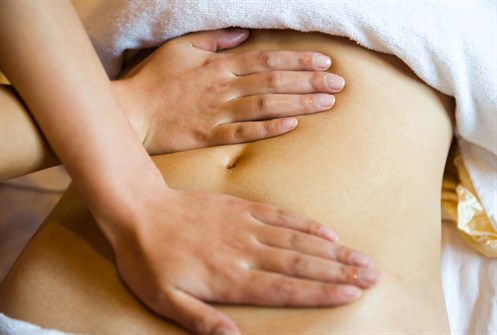In Chinese culture, confinement (Zuo Yue Zi) is for the duration of one month, but can be up to 45 days for greater healing. The duration of your confinement might also vary if you are recovering from caesarean. During Zuo Yue Zi, the woman is not supposed to exert herself, so her mother or mother-in-law will often live with her to cook and clean.
Among modern families, the practice now is to hire a confinement nanny or to choose a confinement meal delivery service.
Here is some more information about common traditional Asian confinement practices
No Showering
The most common recommendation is the no bathing and no hair washing practice for the period following the baby’s birth. If you have heard of this practice and don’t wish to follow it, you could still clean your hair with a gauze-like material dipped in alcohol and wrapped around the comb. Or you could use a ‘dry shampoo’ which is available in most pharmacies. As for not showering, which is a challenge in tropical weather, you could opt to take warm sponge baths with ginger or neem leaves.
While showers and regular baths are not encouraged, specially made up herbal baths are a part of traditional confinement practices
No Air Conditioning
Cold air or water is a big no-no during the traditional confinement period. These prohibitions are said to help ensure that your body retains as much heat as possible. It is believed this will help you avoid health problems such as rheumatism, arthritis, headaches and body pains later in life.
Specific meals
During the confinement period, new mums are encouraged to eat specially prepared meals with ‘warming’ ingredients such as ginger, black pepper, sesame oil and rice wine. These ingredients are believed to help with the healing process and help new mums regain their strength faster. A traditional Chinese confinement food practice includes fish soups, which are believed to boost low milk supply and improve breast milk quality. You are also expected to avoid ‘cooling’ foods such as cold drinks, cucumber, cabbage and pineapple. Foods that cause ‘wind’ such as onions and jackfruit are also avoided during this period as they are believed to cause colic in your baby.
Adequate rest
New mums are expected to rest during the confinement period. Ideally, they shouldn’t even have to deal with any cooking or household chores.
Massages
Massages are considered to be a good way to get your body back into great shape and lose weight after pregnancy. This not only applies to the physical appearance of a new mum, but also helps to ensure internal wellbeing after pregnancy. Special ointments are used for massaging, after which your abdomen is tightly bound. A popular ingredient used among the Indian community in Singapore for massages is mustard seed oil. In the Malay community, a confinement practice is to hire a traditional masuese (bidan) who also binds the tummy with a special postnatal corset known as (bengkung).
Special tummy massage are popular during the confinement period
Hot stones
Popular among the Malay community, the practice of placing hot stones on a new mother’s tummy (menaikkan rahim) is believed to help remove impurities and cleanse the womb. Very experienced traditional masseuses usually do this, with techniques and stones carefully selected for the purpose.
Staying at home
It’s not called ‘confinement’ for nothing! New mums are not encouraged to leave the confines of their homes as it is believed the outside environment is filled with germs and other impurities.
Exercises
You may be surprised to note that there are some exercises which new mums are encouraged to do during the confinement period. Some of these include pelvic and lower body tilts, leg slides, head, neck and shoulder raises.
While many of these practices are quite traditional, they are not set in stone and many modern Asian families now choose which practices to follow or modify. Ultimately, confinement practices – whichever culture they belong to – are designed to help new mothers recover from their childbirth quickly.
Do you know that an average baby will need 1057 nappy changes in the first 6 months? Get exclusive promotions and free diaper samples by joining the Huggies Clubnow! As a member, you can also gain exclusive access to the Huggies Forum and connect with experts to get more personalized parentingadvices.
The information published herein is intended and strictly only for informational, educational, purposes and the same shall not be misconstrued as medical advice. If you are worried about your own health, or your child’s well being, seek immediate medical advice. You should never delay seeking medical advice, disregard medical advice, or discontinue medical treatment because of information on this website. Kimberly-Clark and/ or its subsidiaries assumes no liability for the interpretation and/or use of the information contained in this article. Further, while due care and caution has been taken to ensure that the content here is free from mistakes or omissions, Kimberly-Clark and/ or its subsidiaries makes no claims, promises or guarantees about the accuracy, completeness or adequacy of the information here, and to the extent permitted by law, Kimberly-Clark and/ or its subsidiaries do not accept any liability or responsibility for claims, errors or omissions.
Last Published* July, 2023
*Please note that the published date may not be the same as the date that the content was created and that information above may have changed since.





